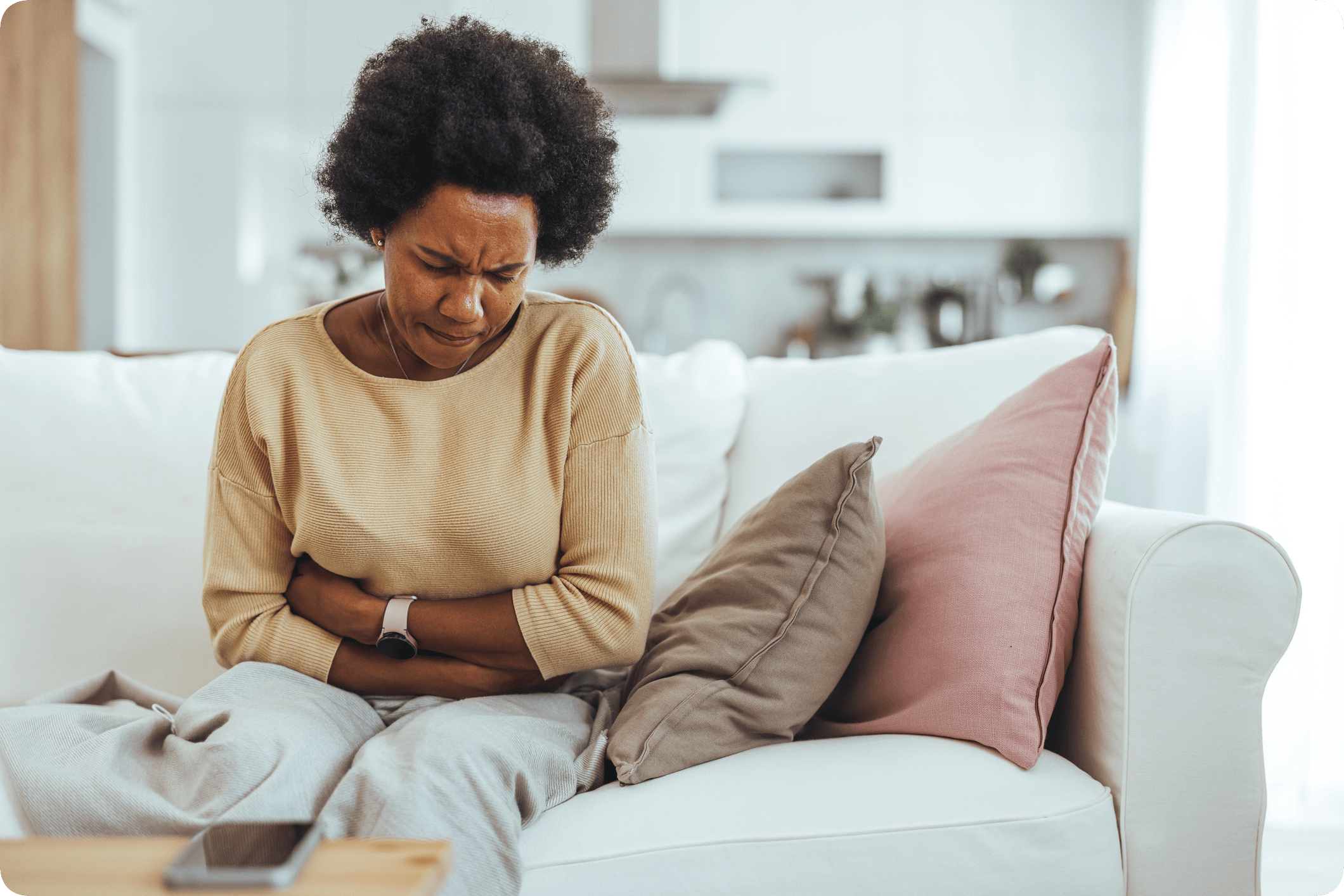Probiotics
Irritable Bowel Syndrome
IBS is one of the most commonly diagnosed gastrointestinal conditions seen in clinical practice. Most people will experience the symptoms of IBS (irritable bowel syndrome) at some point in their lives. However, those with IBS experience gastrointestinal symptoms with more frequency and intensity.
IBS can be unpredictable, disruptive and have a significant impact on quality of life. For many, it affects sleep, diet, the ability to travel and sexual relations. Symptoms may interfere with daily activities and leisure time, impacting one’s ability to function. In fact, the increased risk of suicidal behaviour has been noted in patients with severe IBS.
At work, IBS is a major contributor to lost productivity and absenteeism. It may affect personal interactions and professional experiences.
Although IBS can affect anyone, it tends to peak in those who are in their 30s and 40s and decline after reaching 60 or 70 years of age. These troublesome symptoms tend to wax and wane for at least two years and can be aggravated by stress.
Tests and Treatment Options
A diagnosis of IBS is made based on symptoms. Physicians will take a medical history and perform a physical exam. They may also order diagnostic tests to rule out other potentially more harmful illnesses. Diagnosis is generally made according to the Rome IV diagnostic criteria. This characterizes IBS as recurrent abdominal pain for, on average, at least one day per week in the past three months, and being associated with two or more of the following symptoms:
Symptoms of IBS
- abdominal pain and cramping
- associated with bowel dysfunction
- constipation and/or diarrhea
- abnormal stool frequency
- bloating
- excess gas and flatulence
- symptoms worse after meals


Alarm Symptoms
When is it more than IBS?
The following are not likely to berelated to IBS. You should seek medical attention if you experience:
- fever
- anemia
- blood in stool
- frequent awakenings at night due to GI symptoms
- significant and/or unintentional weight loss
- family history of cancer, IBD or celiac disease
- onset of symptoms after age 50
- abnormal physical findings (abdominal mass, malnutrition)


Probiotics Proven to Help YouImprove Your Quality of Life
It is essential that the proper probiotic strain be taken to relieve IBS symptoms. Please use the listing below as a guide to selecting an appropriate probiotic that has been proven through respected research to treat IBS.
Adults
- Activia® (fermented milk product)
- Align® (capsules)
- Align® CheWables (tablet)
- Align® Probiotic Gummies
(cheWable gummy) - Bio-K+® IBS Pro (capsules)
- Biomed Bacillus Coagulans (capsules)
- HMF Forte/IBS Relief/Intensive (capsules, powder)
- GoodBelly® Probiotic Juice Drinks
- GoodBelly® Probiotic SuperShot Dairy-free drinks
- Purica Probiotic Intensive GI (capsules) |
- Ultra Probiotic Complex by GNC (packets, capsules)
- UltraFlora® Balance (capsule)
- UltraFlora® Intensive Care
Pediatric
- BioGaia® Protectis® Baby Drops (drops)
-
BioGaia® Protectis® Chewable Tablets
- BioGaia® Junior Tablets with Viatmin D
-
Culturelle® Kids Daily Probiotic (chewable tablets, packets)
-
Culturelle® Kids Immune Defense Probiotic (chewable rablets)
-
Visbiome® (sachets)
Looking for Relief
IBS can often take a long time and leaves many people feeling stigmatized. Sadly, the full impact of the IBS is often under-reported to healthcare providers. Many patients with IBS are embarrassed, believe they are not taken seriously so do not seek professional medical advice.
There is no conclusive test or cure for IBS. Current therapy aims to relieve symptoms with the focus being predominantly on stool pattern.
Probiotics are safe and often effective at providing relief for those living with IBS. Probiotics may resolve IBS symptoms and have few side effects.
Pick the Proper Probiotic
Selecting the proper probiotic and taking it appropriately for the symptoms or condition you wish to relieve is imperative. Always consult with a healthcare professional (HCP) when selecting remedies for your health.
If your HCP has recommended a specific brand, do not make substitutions without checking with them or referencing the Guide. There are many products that do not have scientific evidence proving their safety and effectiveness on the shelves beside those that do. You may be wasting your money and delaying your recovery if you do not use the appropriate probiotic.
The Clinical Guide to Probiotic Products (the Guide) is the only comprehensive summary of probiotic brands that reviews, rates and summarizes the scientific evidence available for specific probiotic brands.




